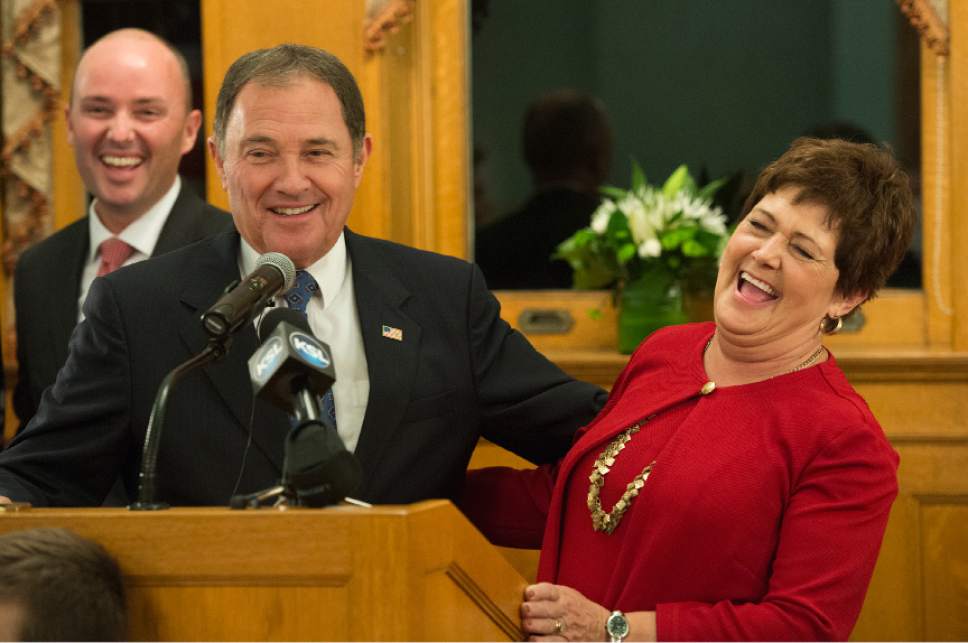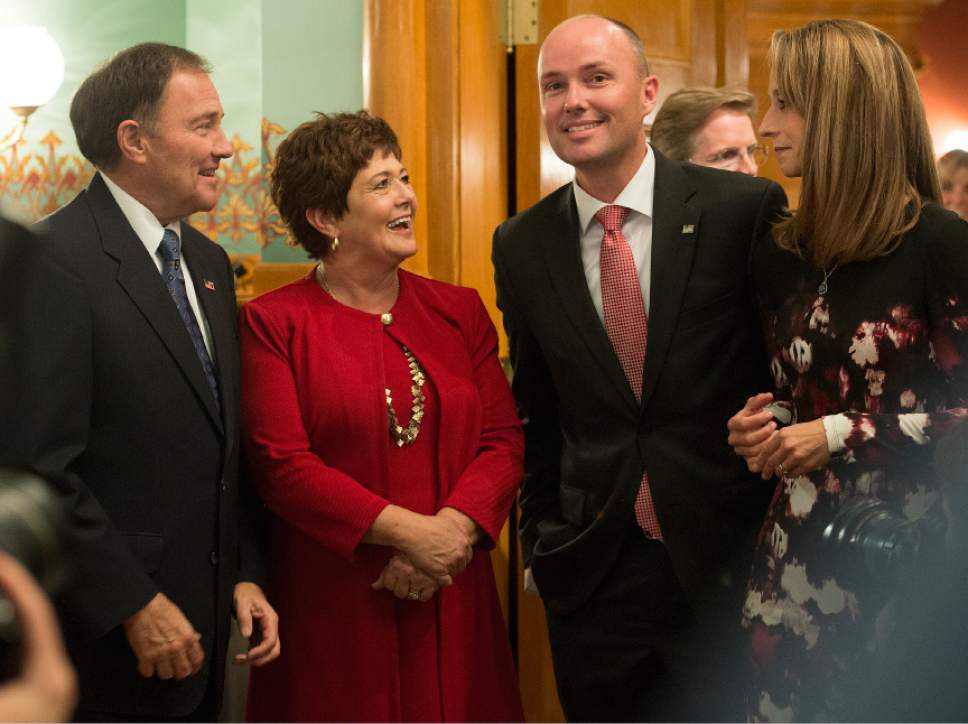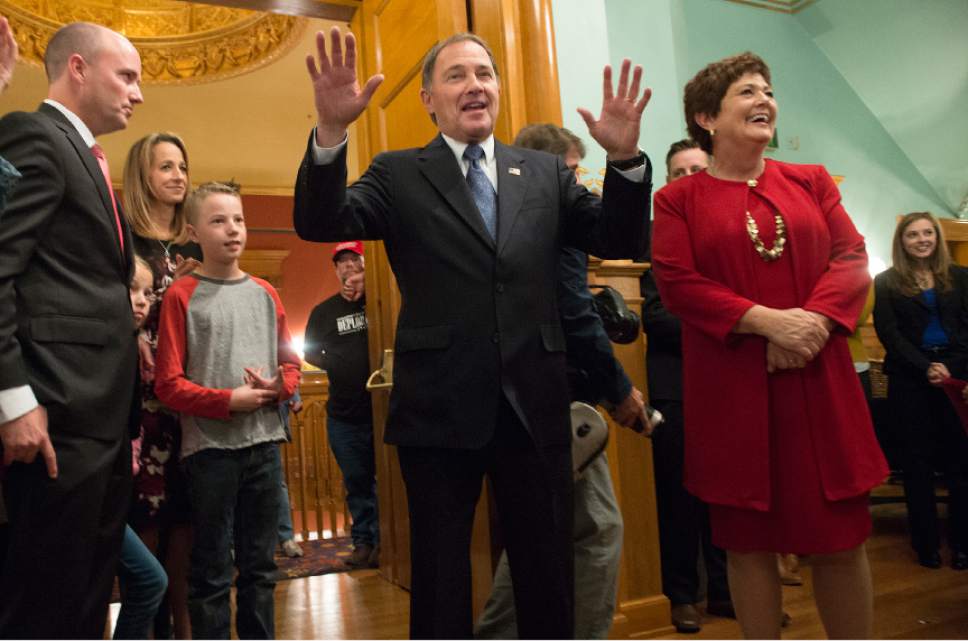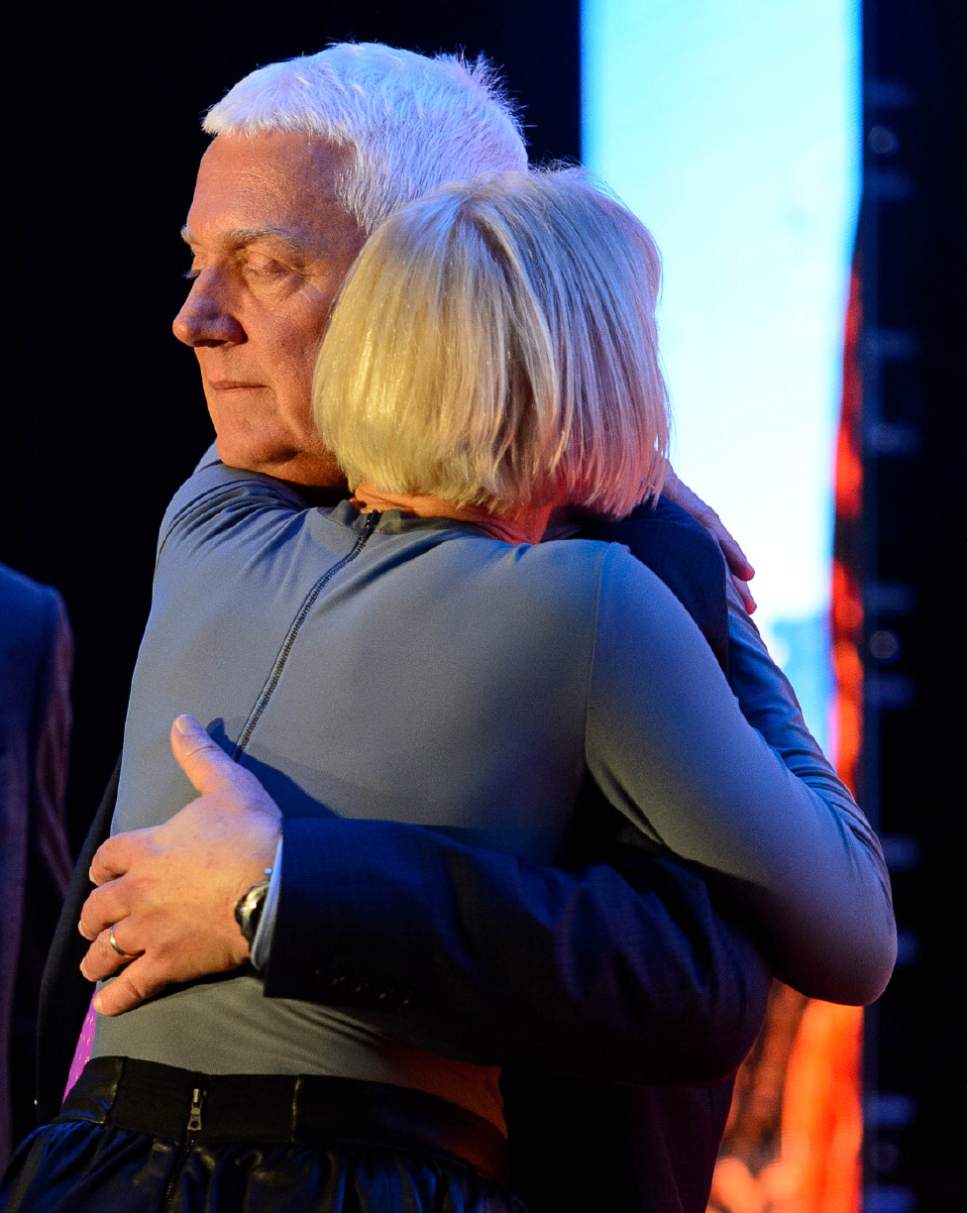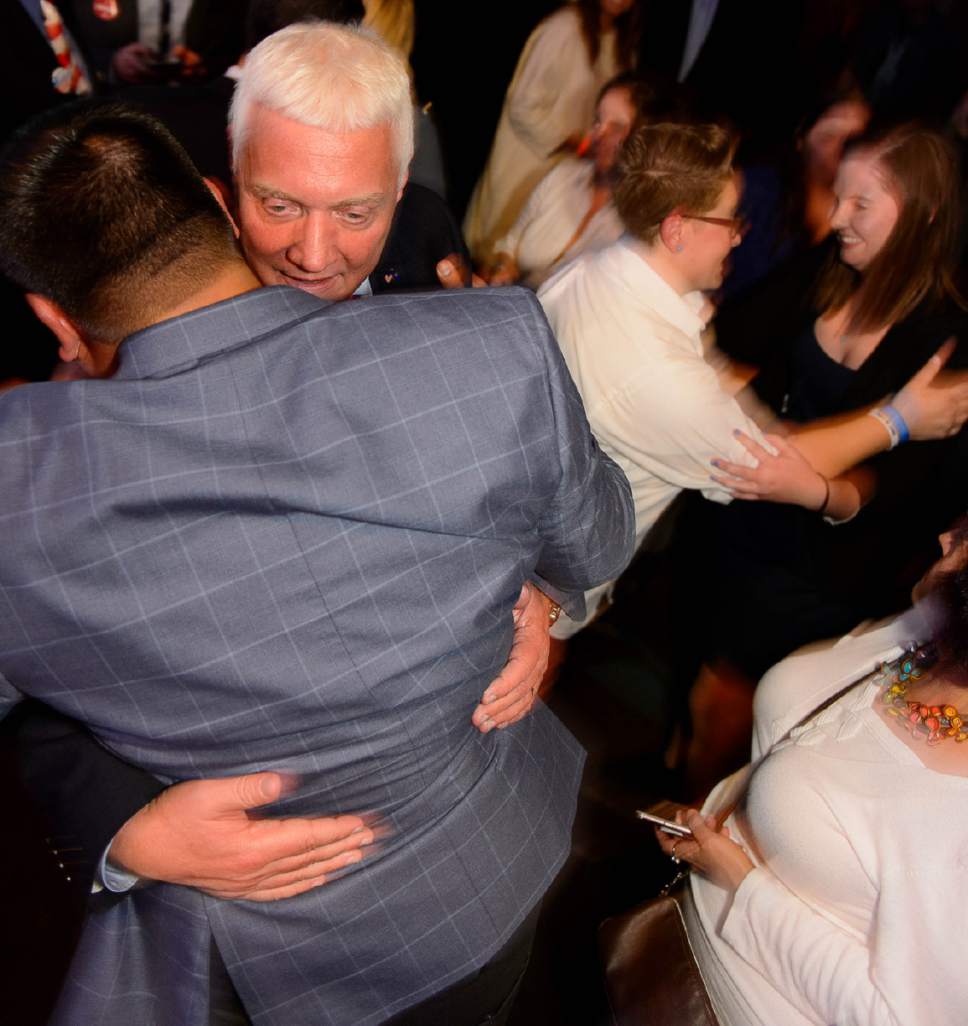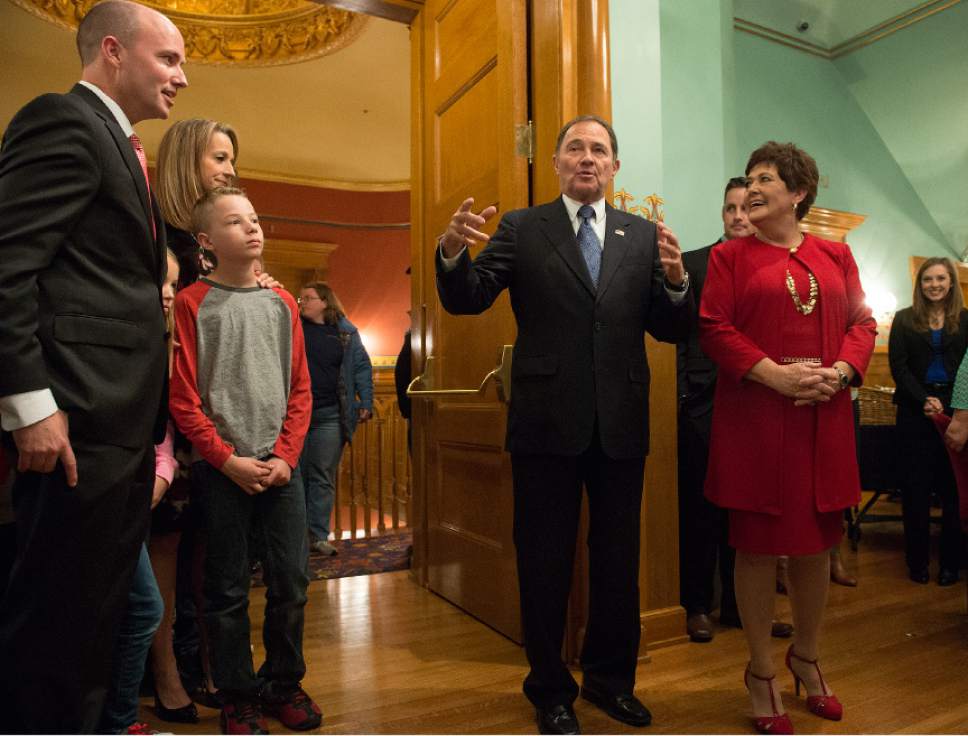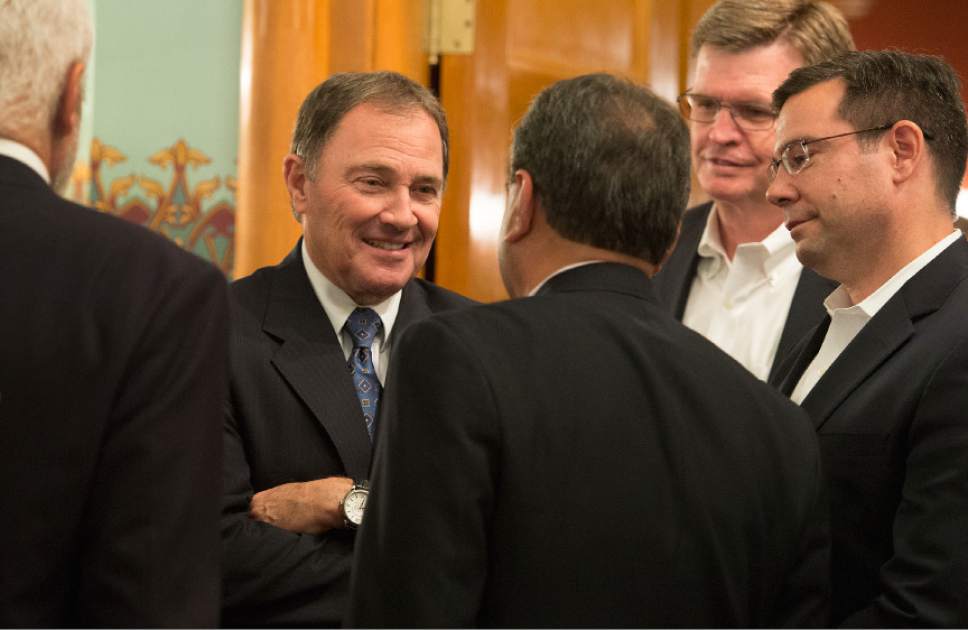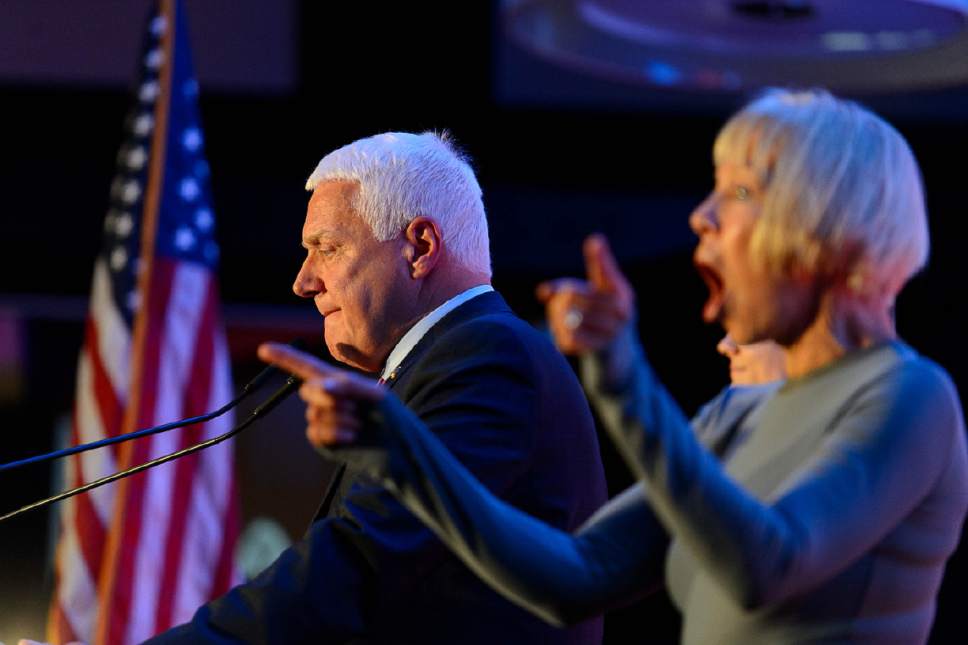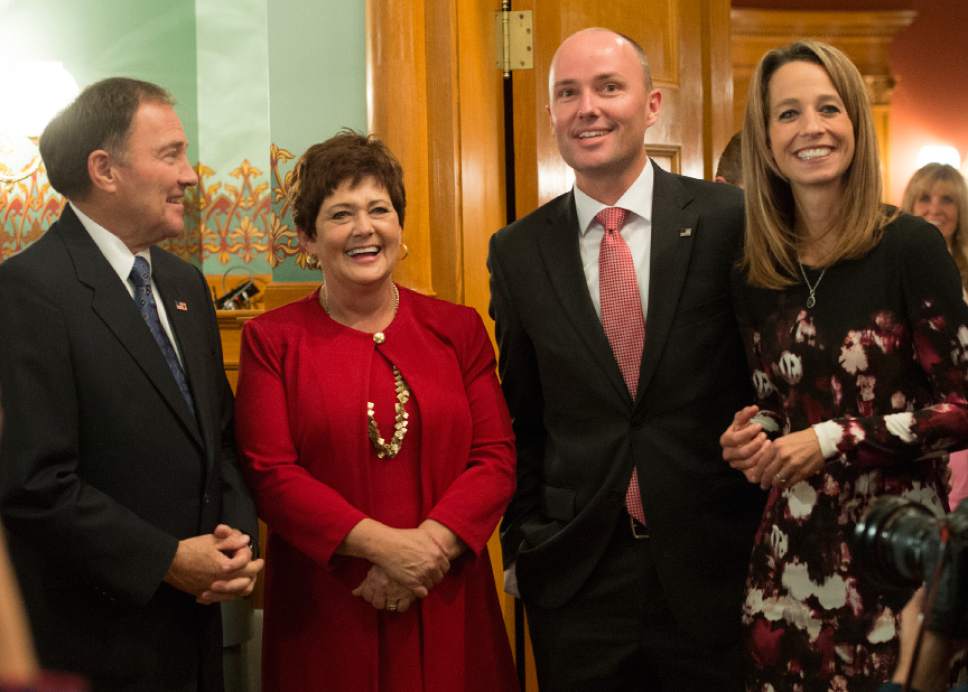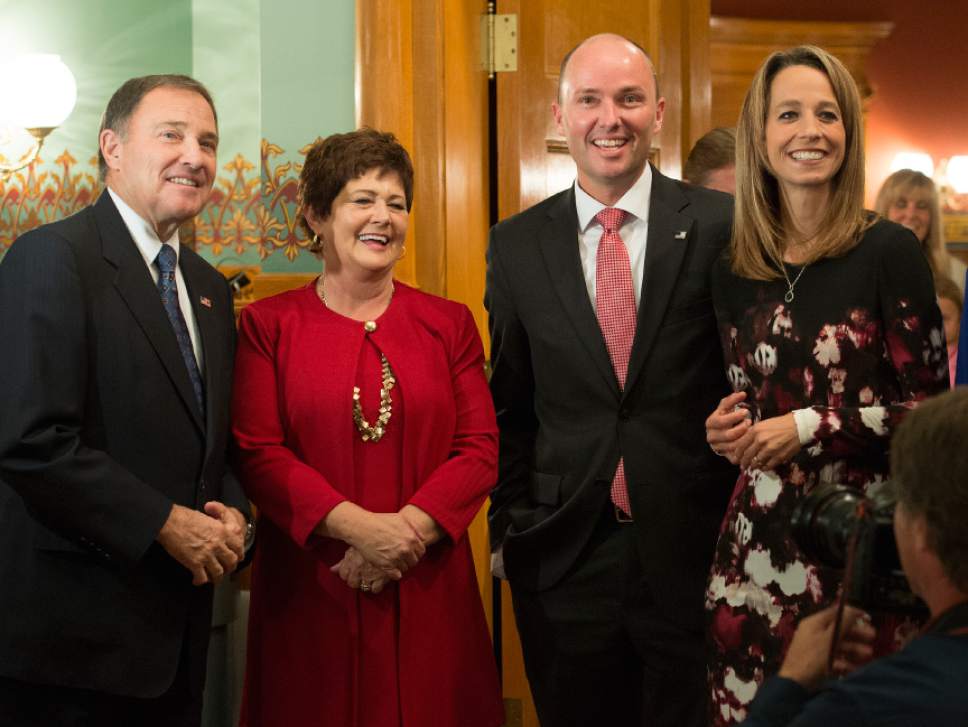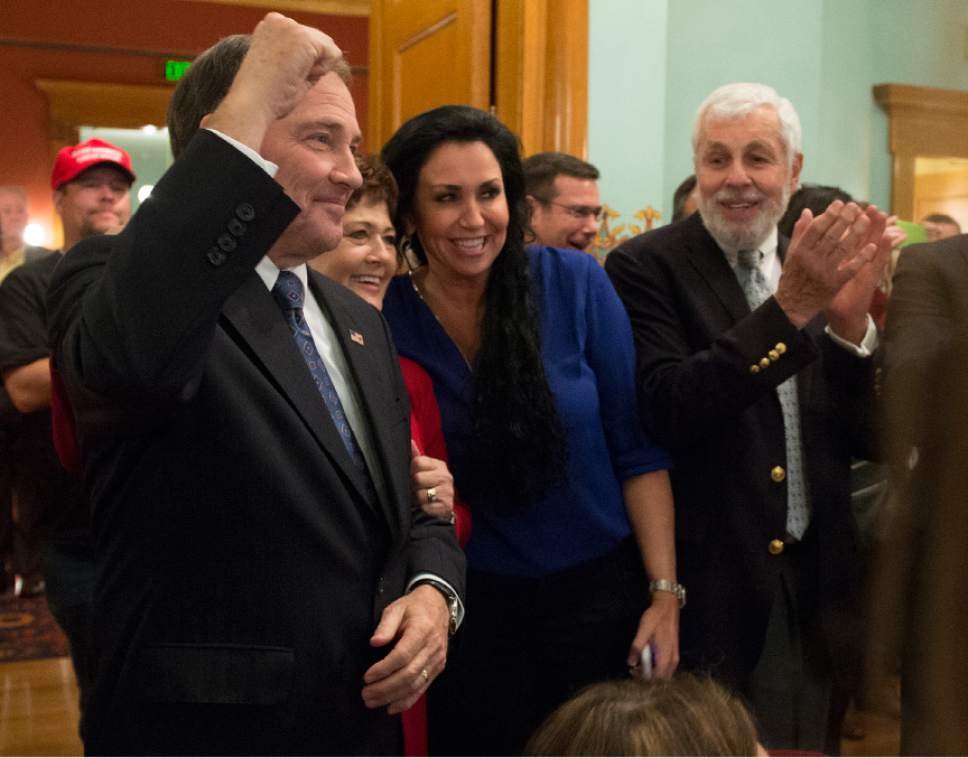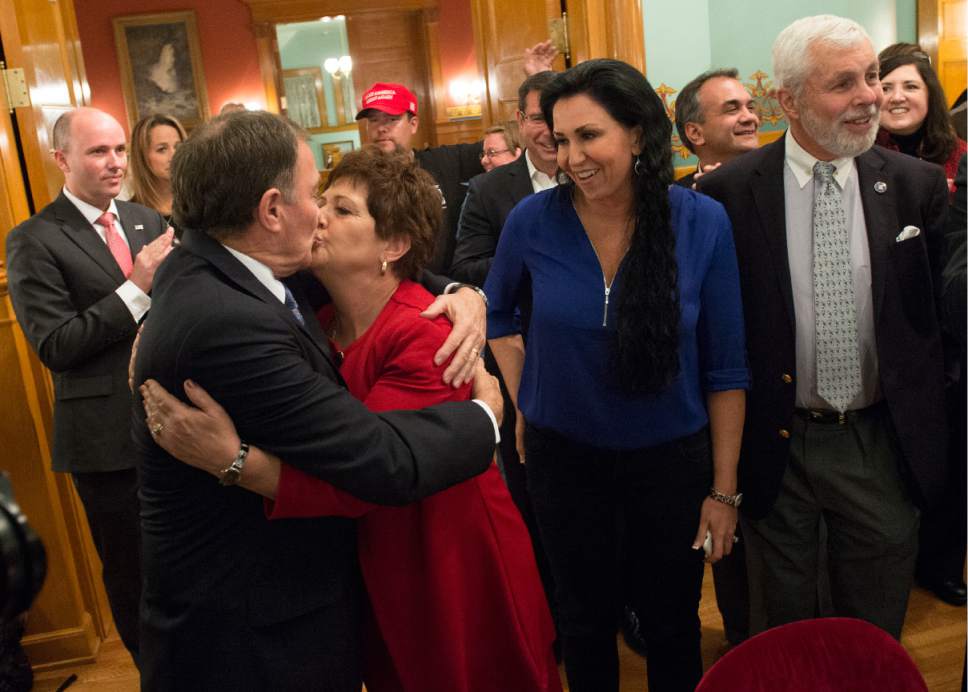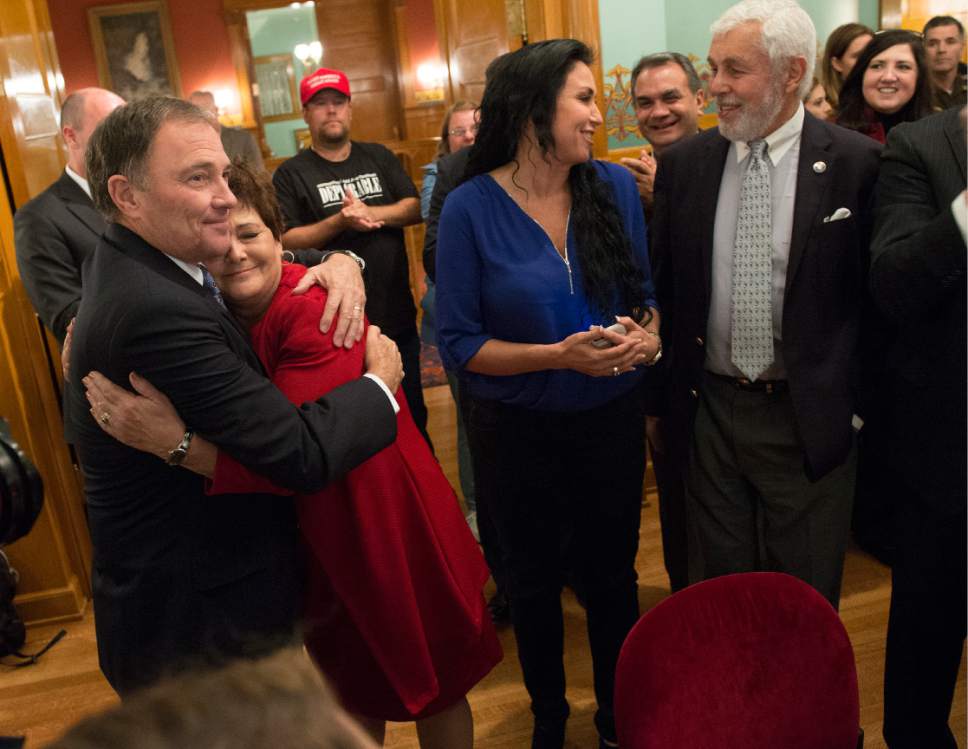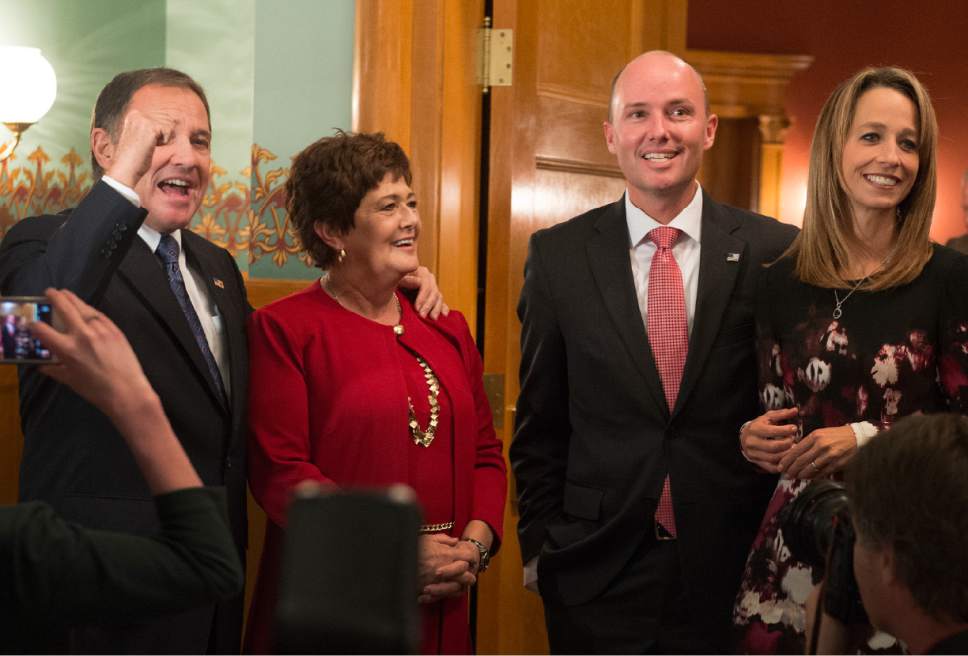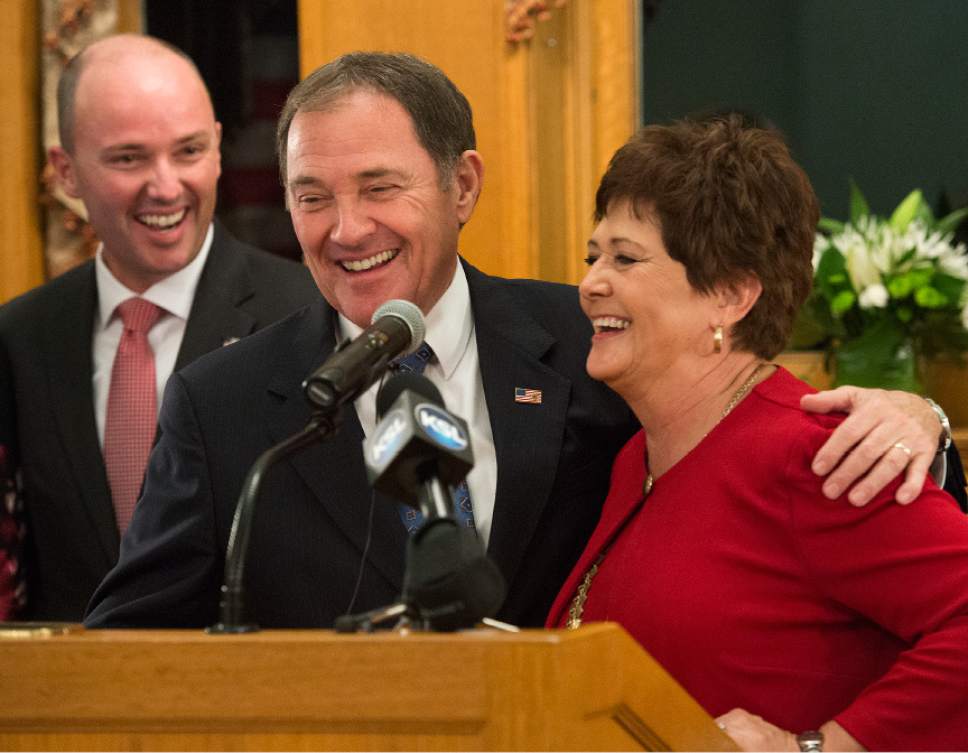This is an archived article that was published on sltrib.com in 2016, and information in the article may be outdated. It is provided only for personal research purposes and may not be reprinted.
Utah voters made Gary Herbert the third governor in state history to win election three times, according to unofficial results early Wednesday.
"It's obviously an honor to serve as governor and to serve as governor of a state that really is exceptional," Herbert said in an interview. "It's humbling to be re-elected. ... It just makes me want to redouble my efforts to work hard."
The Associated Press called the race for Herbert just after 8 p.m., even though voters were still in line waiting to cast ballots in the race nearly three hours later. The Brigham Young University exit poll also showed Herbert with an overwhelming lead against Democrat Mike Weinholtz.
By 2 a.m. Wednesday, unofficial returns gave Herbert a 67 percent to 29 percent victory.
Herbert built his campaign on his record in nearly seven years as governor, taking an economy that was in the depths of the recession when he inherited the office to one that is outperforming most in the country, and promising to maintain the course.
Weinholtz argued the state was due for a change and blasted Herbert for not improving Utah's worst-in-the-nation funding for education, failing to fight hard enough to expand health coverage to low-income Utahns, and not addressing Utah's poor air quality.
Weinholtz, who founded a successful medical-staffing company, pumped $2.7 million of his own money into his bid to unseat Herbert, but polls showed his message failed to gain traction. Herbert, who raised more than $3 million from donors, enjoyed strong approval ratings and a comfortable lead throughout the campaign season.
"From the get-go we had an incumbent governor whose approval rating was over 70 percent, and when you have a governor who is viewed that favorably, it became very difficult to make a race of it," said Utah State University political science professor Damon Cann.
Herbert said he will remain focused on education, developing a skilled labor force and growing Utah's economy, but does not see a major shift from his priorities.
"I don't think of it in terms of political capital or you can spend it or have some in the bank," he said. "I just think of it in terms of, 'Let's just do the right thing.'"
Herbert joins Democrat Cal Rampton and Republican Mike Leavitt to win election as Utah governor three times.
He has said he will not seek another term in 2020.
Herbert had his closest brush with defeat at the Utah Republican convention, where Overstock.com chairman Jonathan Johnson mounted an assault on Herbert's conservative credentials and came within a few dozen delegate votes of eliminating the incumbent, forcing a primary with the governor.
Herbert created additional problems heading into the primary when he was recorded meeting with several dozen well-connected lobbyists, telling them he would meet anytime, anywhere with their wealthy clients, referring to himself as "Available Jones," a reference to a character in the comic strip "L'il Abner" who would do anything for a buck.
But the gaffe barely put a dent in Herbert's veneer, as polls showed the governor leading the challenger by a margin of nearly three-to-one.
From there, Herbert essentially ran out the clock on Weinholtz, declining invitations to a handful of debates — the two candidates eventually squared off twice — and focusing on upbeat ads and billboards touting his focus on education and the economy.
In addition to criticizing Herbert's record on education, air quality and health care, Weinholtz criticized Herbert for signing legislation calling for the state to sue the federal government to demand it relinquish control of 30 million acres of public land in Utah, and said the state should legalize medical marijuana.
Weinholtz's wife, Donna, recently pleaded no contest to possessing marijuana, which she used to treat her back pain.
"I couldn't be more proud of the campaign that we ran and the campaign staff that executed it," Weinholtz said Tuesday night. "It was a world-class campaign. ... I just couldn't be prouder of the campaign."
Weinholtz said it's too early to think about whether he would run again in 2020.
"Governor Herbert's primary challenger and his general election foe, Mike Weinholtz, did the best they could and made the best arguments they could, but at the end of the day, if the incumbent has high approval ratings coming into the election, it's going to be an uphill battle," Cann said.
The victory means that, beginning next year, Herbert will be the second-longest-serving governor in the country, behind only Idaho Gov. Butch Otter, who took office in 2007 — although Iowa Gov. Terry Branstad served 16 years before running and winning again in 2011.
Twitter: @RobertGehrke
— Zoe Woolf McGinn contributed to this story.


